Made in MexicoThe Cookbook: Classic And Contemporary Recipes From Mexico City
Danny Mena
Danny Mena loved food and cooking growing up. However he never set out to be a chef. His goal was to become an engineer. He studied industrial engineering at Virginia Tech. So naturally life being what it is, he’s now a chef, restaurateur, author and owner of a mezcal company. It’s quite a story and we were please to listen to it when Danny Mena recently spoke with us.
BAF: This seems to be a different kind of take on previous Mexican cookbooks you see out on the market?
Danny Mena: We were definitely trying to do something a little bit different. Born and raised in Mexico, so the type of food that I know and love is something that, I think, sometimes gets lost here in the United States. I wanted to do something that kind of shows Mexico City in a different light and something that I think is more realistic and alive. Sort of a way that I think people that go down and get to experience it are coming back and talking about how much they love it. Born and raised there, I’ve always been very fond and keen of my own city. So it’s kind of that idea to show a little more of the travel and beauty of Mexico City and why I think Mexican food is so great.
BAF: You touched on something, which I was going to ask you about was that you seem to be focused on Mexico City, that’s what I found interesting. You show the diversity or, I won’t say complexity, but certainly some of the fascinating things that people don’t think about.
Danny Mena: Mexico City is an interesting area. That it’s in a sense like New York, where there’s no real cuisine that is necessarily unique to it. It is kind of regional, all kind of comes together in Mexico City and then for whatever… ‘Mexico City sensibility’ towards it starts to kind of modify. But it kind of has everything. So there is great Yucatan, great Oaxacan food, great Pueblan food, wonderful seafood. There’s Argentine steakhouses. I mean, there’s kind of everything within the realm of Mexico. It’s got a ton of variety and really an interesting sort of place to eat and to live.
BAF: That’s what I found interesting because you’re not doing regional, you’re not doing ‘tacos’. I don’t think people really think about Mexico City as being a food destination as such
Danny Mena: No, I don’t think people do as much. Now I’m starting to hear a little bit more, at least here in New York, on the East Coast.
Living on the East Coast, you’ll see a little more… Like New York City, at least more people that are experiencing Mexico. Still in California, people still go more towards the Pacific and head towards Puerto Vallarta and stuff like that, of course. Cancun is still always huge, but it is becoming a little something. We came up with this idea of this book about nine years ago. I mean, it’s not nine years ago, sorry, five years ago. At the time, as time went on, when we finally signed on with a publisher, I was like, “Okay, it can be published in 2018 or something.”
So I was like, “Jesus Christ.” 2019, I was like, “This is so long away. Someone’s going to come up with this idea. It’s going to be kind of past its time. It’s not going to be that interesting or original.” At the time when we’re looking at comps and everything. It’s like, “No one’s really doing anything like this.” Interestingly enough, I guess, because everything takes forever, it’s still the case that no one did anything like it, which is really nice to kind of tease it. We’re able to hit the nail on the head with a good concept, I think, or a good idea and something kind of original and unique.
BAF: What are some of the mistakes that people think when they talk about Mexican food or think of Mexican food?
Danny Mena: I think, in general, the idea of a Taco Bell taco. I think first of all like, God, there’s so many kinds of little misconceptions. One thing I’ll mention is pricing and kind of what we want to talk about. Mexico, obviously the peso is worth less than the dollar. Minimum wage is substantially lower in Mexico than the United States. When people go to Mexico, and you live there, or when you travel there, you translate everything to dollars. You translate everything to you to pounds or euros, everything’s going to seem cheap.
So it’s this idea that Mexican food, and I think China kind of has the same sort of idea of these sort of ethnic foods being… like Thai. And because there’s street tacos in the United States, or what have you, I think people expect a certain price point, and anything above that… There are very fancy nice restaurants in Mexico and they can be very expensive. So really one of the big things is to, in the book, is to like, “Yes, there’s cheap and we show some tacos and we show some little taco stands. But also we have some really nice restaurants that are in the Pellegrino Top 100 of the World and are pricey.” Those are really so because of the food that goes into it and ingredients. It’s just as expensive for Mexican food as it would be for Italian or for French food.
I mean, an ingredient is an ingredient. So that’s one thing I think is important and wanted to showcase that it doesn’t have to be cheap to be Mexican to be good. There’s different facets.
“What exactly is Mexican food?” is something that also, I think, it’s easier to say, in my opinion, what is not Mexican food. I can tell you, I can look at it and say, “That is really not.” But describe it…Does it have to be in a tortilla? Does it have to be flour? Does it have to be corn? Does it have to be spicy? Can you use broccoli? You know what I mean? Things like that, that may not even sound… If you don’t think about and all of a sudden, like, “Wait a minute. You can’t perceive broccoli on a menu in the United States,” but broccoli exists in markets, and people eat broccoli a lot in Mexico. You know what I mean? I don’t know if it’s consumed as much in the States, but they’re very close if not the same.
Of course, what comes to mind is the Taco Bell taco with lettuce, cream cheese, and then cheddar and stuff like that. Just ingredients that we don’t use, it’s a type of tacos that don’t really exist. Chipotle, with rice and all those sort of things and that idea of a little burrito, really doesn’t exist in Mexico. I think it’s hard to say that is or isn’t. It’s more of when you see it and once you experience it, then you say, “Ah, this makes sense, and these are the flavors.”
Another thing, Mexican food is very light… We use a lot of use of cilantro and lime. And the acidity from the tomatoes and the chilies. Ground beef obviously exists in Mexico. I don’t know. It needs to have some sort of… even though it can be pork. Like you can have carnitas. It can be very heavy in that sense. You counter it with a very spicy bright salsa, it really kind of elevates the dish. It doesn’t make it that heavy, weighty, and anything like that. There’s always a great balance in Mexican food with that.
BAF: Clearly there’s a lot of options in Mexico City, how did you narrow down what restaurants and recipes to put in this book?
Danny Mena: Well, the recipes were mine over the years. I’ve had a restaurant in New York now for a better part of 15 years. So over time, we’ve done a lot of specials and a lot of different things. I started doing a lot of research on Mexican food over the years in tons of cookbooks and learning about originality and everything. Then, of course, every time I go down to Mexico, I always learn a little more and would always eat as much as I possibly could. With my friends, we’d always go to a newer restaurant and old classics. So there was obviously restaurants that I knew of that that were ones that I’ve had gone to over the years. There were newer restaurants, if we had known the chefs or something like that, if they were doing something really interesting. Then there were recipes that I had come up with that are mine, and they were trying to find a restaurant that we felt did something in the same sort of vein that was doing things right.
My writer, Nils Bernstein, who knows the city very well. Some of these, he was, “Like, man, this restaurant makes the best pozole ever,” or something like that. Then we tested it, and I was like, “You know what? This is a perfect one for the green pozole recipe. Let’s talk about that place,” and it has a great story or things like that. Sometimes we chose the right restaurants who kind of fit the scene, the food. I went to this place called Los Danzantes, and I had a dish there 15 years ago. I was like, “This is just perfect.” Over the years, I had kind of made my own recipe, but it was based off of that sort of..
BAF: That experience.
Danny Mena:… that experience.
BAF: Well if that’s something if it stuck with you for 15 years.
Danny Mena: Yeah, there’s a few that kind of just like. Especially since I started becoming very sensitive to the Mexican food in my sort of knowledge. I don’t have the pedigree of my family having restaurants and I used to watch grandma and all that. I don’t have that sort of story.
BAF: Your story is quite interesting too, how you came to appreciate food and how your interest grew.
Danny Mena: Yeah. Yeah.
BAF: Sort of completely by accident. I guess an unfortunate situation (parents separating), but it’s-
Danny Mena: Yeah, but it really was an accident that it started to… There’s a saying in Mexico. Something good can come of something bad.
BAF: Silver lining, I guess.
Danny Mena: Yeah, I guess something like that, exactly. Anyway, as I got older, I started to really pay attention to these dishes and pay attention to… cook the food. Even more, for a long time, I liked cooking more than eating. So I was really into just understanding how the dishes were made, how they were elaborated, kind of figuring out the whole thing. Everything was just such a wonderful novelty, of just how restaurants operated and how all the kind of aspects, the nerdy side of me really got into.
BAF: Interesting. You like the food, but you seem more interested in how it was made.
Danny Mena: For a while I was more fascinated. Even as much as I started enjoying food and that idea. Then when I started cooking, half the time I just cook, and then I’d eat like a couple bites, but really I was much more interested in the cooking process of it. I wanted to get recipes and cookbooks and just learned all about that and was really fascinated with-
BAF: Maybe that’s your engineering background.
Danny Mena: Yeah, maybe that’s kind of what got me into-
BAF: Problem solver.
Danny Mena: Yeah, I guess so.
BAF:Can I ask you about the photos? Because the photos are really amazing, I think, in this book.
Danny Mena: Thank you. Thank you.
BAF: Did you find the photographer yourself? Was it a local person?
Danny Mena: No, we had this photographer friend of mine who does a lot with photo journalism. That’s kind of his strong point. But he was weak on kind of studio photography. Of course, we needed some studio photography for the recipes that we created, and then we needed some good photography that was good for on location. We wanted to capture a really kind of just, once again, the experience of: What is Mexican food and what is Mexico?
We had two great photographers. One, Aaron Adler, who is great at the on-location photography. He was just super excited about the project when I told him about it. He immediately jumped onboard, and it was kind of showcasing that strong point of his. And then the other photographer, we kind of explained, obviously, the concept of the book and everything. His photography was a good enough as a photographer not only to make our food look pretty, but also to really capture a more… I don’t know if I’d say raw, but real photography of our dishes.
So you can’t really tell… A few, of course, because some are very, very rustic. But, I mean, it’s a very nice kind of… There isn’t a juxtaposition, but it’s kind of a linear feel to the book of capturing real food without being… My food isn’t ‘tweezer’ food, and that’s not what Mexico really is about. Even though there is nice dining there. And that’s kind of the idea of the book is to show just, it can be tacos and it can be really fucking nice ceviches. It can be fancy tongues, and it can be… The whole realm can all fit within this with no problem. You know what I mean?
BAF: I like the explanations, not a lot of ‘tweezer’ food there. I guess youeven have a tequila business too on the side.
Danny Mena: Mezcal. Yes.
BAF: Yes.
Danny Mena: Yeah. I mean, definitely, when I got started the restaurant 10 years ago, or 12 years ago, really when these two guys who started the mezcal company in Mexico were looking to find someone in the US. At the time, we had just opened the restaurant. We had been drinking a little bit of mezcal there. So I knew a little bit, but I knew very, very little about mezcal. I knew nothing of distribution, importation, but anything related to Mexico… If there’s one thing I could say, it’s that I like to work. I was like more work and something that seems like fun. It made me excited. I was young. I was very hungry at the time for any of that. And so I said, “Okay, sure.”
So I flew down to Mexico. I met these guys for the first time. We got off really well. I said, “Okay, why don’t we become equal partners in the United States? And let’s do this.”
When we first started doing it, it was little by little, and then as time kind of went on, it became more and more. Now I spend 80-90% of my time with mezcal.
BAF: Oh, that’s good.
Danny Mena: It’s been a wonderful transition. When we first started, there was no business, no category of mezcal really. But there were a few people that are interested, and we loved it. I was hoping that it wasn’t just a little fad as we saw it kind of growing and growing. Then it became kind of what it is, and hopefully it’ll continue to keep growing in the same direction.
BAF: Well it sounds like I misspoke when I called it a tequila because it’s definitely a different drink. Okay.
Danny Mena: It’s definitely a different drink. So mezcal’s kind of a subset of tequila. Tequila has to come from one specific region. The blue agave, it has to come from a tequila region, where mezcal can come from any type of agave. And it comes from other regions in Mexico. So it’s similar, but a little different.
BAF: What’s the name of it?
Danny Mena: It’s Mezcales de Leyenda.
BAF: What about your restaurant? Sounds like it’s still going strong.
Danny Mena: So, yeah, we have a restaurant, the original we had was Hecho en Dumbo for about 10 years, but now we have a restaurant called La Loncheria. It’s in Bushwick. We’ve had that one for about two years.
BAF: You said it was a lunch counter? I believe.
Danny Mena: It’s kind of a luncheonette, typical restaurant, 40 seats. Focused, obviously, heavily on mezcal.
BAF: By lunch counter, you mean you serving that kind of casual food?
Danny Mena: Exactly, exactly. Yeah, it’s definitely much more casual in feel.
BAF: So you got your mezcal business. You got a book out. You have a restaurant going quite well. So what’s next?
Danny Mena: Maybe a few hours of sleep. Right now, we’re going to focus on this. I’ve got a family, wife, two kids. I’m going to try to see if we can balance our time as best as possible.
~~~~~~~
© Booksaboutfood.com 2019
“Made in Mexico: The Cookbook is such an exciting book! Danny Mena first takes readers to a whole host of Mexico City’s most mouth-watering, iconic spots (yes, use it as the guide for your next trip), then shares recipes for his versions of their specialties—versions perfected during his many years as chef of New York’s Hecho en Dumbo and other acclaimed spots. I love how deeply rooted this book is in real Mexico City, how it makes me want to get on a plane—or go into the kitchen and get busy—so that I can experience once again those electric flavors unique to my favorite city in the world.”
—Rick Bayless, James Beard Award-winning author, host of Mexico—One Plate at at Time, and chef of Chicago’s Frontera Grill and other restaurants
“Chef Mena’s guide to Mexico City’s dining and coking scene is an exhilarating journey into the authenticity of Mexico’s best recipes and restaurants. As a Mexico City native, I admire and respect Chef Mena’s honesty and passion for real Mexican cuisine. Readers can look forward to an in-depth culinary adventure into how locals eat and drink in Mexico City—and the best places to visit! ¡Salud y buen provecho!”
—Richard Sandoval, chef, founder, and CEO of Richard Sandoval Hospitality
“MADE IN MEXICO: THE COOKBOOK, Classic and Contemporary Recipes from Mexico City, Rizzoli, by Danny Mena and Nils Bernstein is a delicious love letter to Mexico City’s exuberant dining scene, a treasure trove of recipes and restaurants, an in-depth culinary adventure into the authentic fondas, loncherias, taco stands and world class fine dining establishments that makes this vibrant capital such an exciting food destination. Dazzling photography by Aaron Adler and Brent Herrig burst with creativity and innovation just like this regional cuisine.” —ENTREE TRAVEL NEWSLETTER


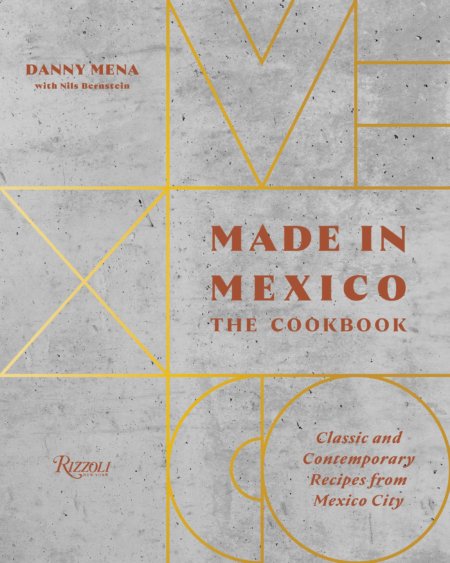


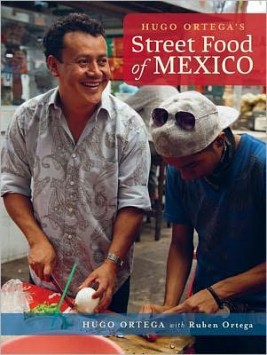
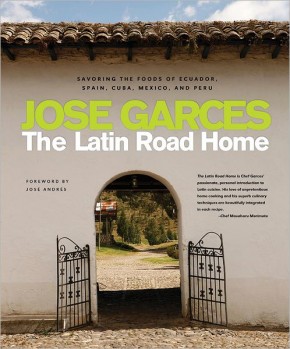
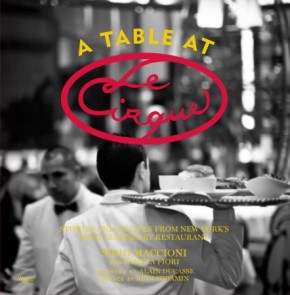
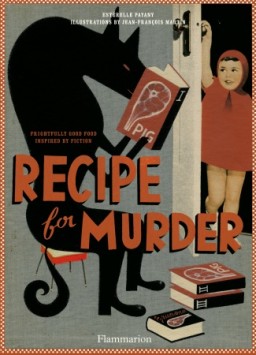
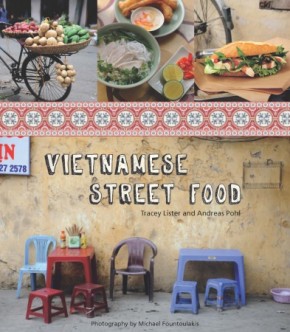
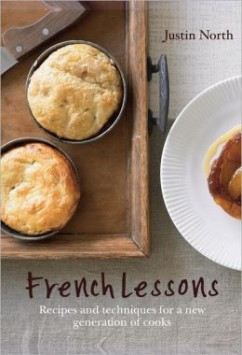
Leave a Reply